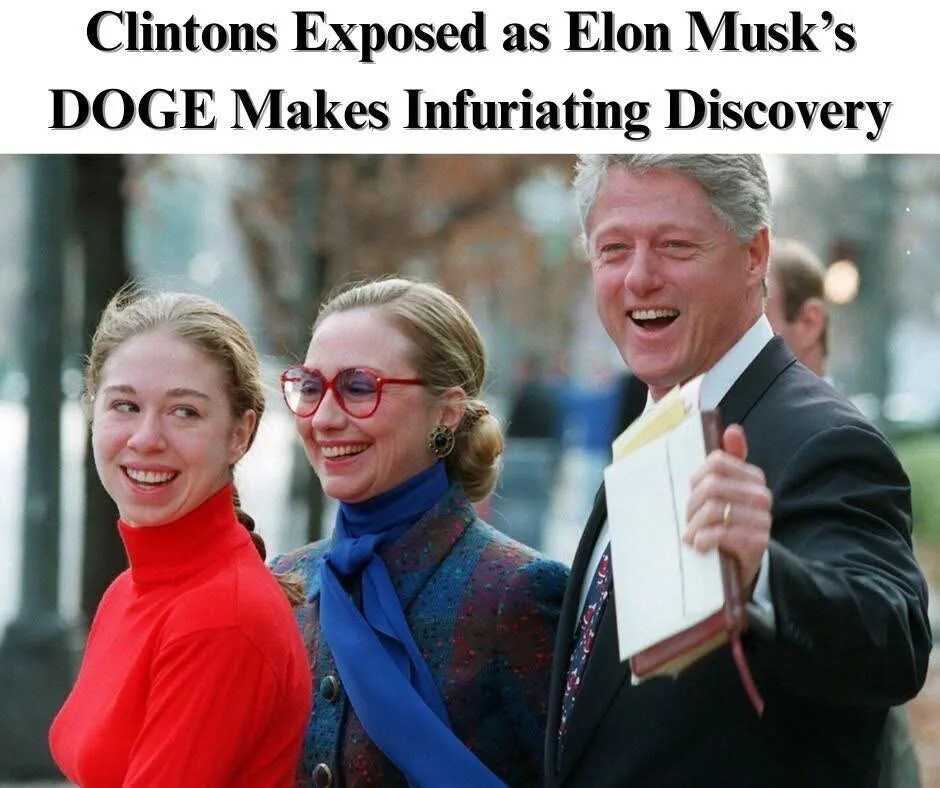Clash Over Government Spending Sparks Heated Debate
A fierce debate has emerged among political leaders over the oversight of federal spending and the future of transportation infrastructure. At the center of this controversy is DOGE (Department of Government Efficiency), a government initiative spearheaded by Elon Musk that aims to eliminate wasteful expenditures, particularly within USAID. The program has been hailed by some as a bold step toward fiscal accountability, but critics, including former Secretary of State Hillary Clinton, argue that inexperience within DOGE could lead to costly missteps on crucial projects.
DOGE was created to streamline government operations through the use of cutting-edge technology, data-driven strategies, and innovative management approaches. Supporters of the initiative claim that inefficiencies in federal programs have led to billions of dollars in wasteful spending, and that reforms introduced by DOGE could significantly improve the allocation of taxpayer funds. By modernizing processes and eliminating redundant expenditures, advocates believe the initiative can help government agencies become more effective and transparent.
However, Clinton has not held back in voicing her skepticism. In a series of pointed social media posts, she criticized DOGE’s leadership, arguing that the team lacks the necessary experience to handle complex projects, particularly in the realm of transportation safety. She expressed particular concern over DOGE’s role in overseeing an aviation systems upgrade following recent airline safety incidents. “The stakes are too high to trust a team of young, inexperienced tech enthusiasts with critical public safety projects,” Clinton wrote. Her comments sparked intense debate over whether technological innovation should take precedence over traditional expertise in government decision-making.
Transportation Secretary Sean Duffy quickly countered Clinton’s remarks, defending the necessity of innovation-driven reform. He pointed out that long-standing bureaucratic inefficiencies have hindered progress for decades and that fresh perspectives are essential to overcoming these systemic issues. “The real problem isn’t innovation—it’s the entrenched bureaucracy that resists change at every turn,” Duffy asserted.
Duffy went further, leveling sharp criticism at Clinton’s involvement in USAID, alleging that both she and her husband, former President Bill Clinton, have financially benefited from policies that DOGE is now scrutinizing. “This backlash isn’t about protecting government efficiency—it’s about protecting a legacy of waste and political favoritism,” Duffy stated. He argued that past administrations had their chance to improve government systems but failed to make meaningful progress, which is why new approaches must be taken.
In one particularly forceful remark, Duffy dismissed concerns over the youth and inexperience of DOGE’s team, stating, “If bringing in brilliant 22-year-olds with fresh ideas is what it takes to fix a broken system, then so be it.” His response underscored the core ideological divide at play—one side advocating for experienced leadership and conventional governance, while the other pushes for modernization and disruption.
The debate between Clinton and Duffy highlights a broader national struggle over how best to balance expertise with modernization in government operations. On one hand, critics caution that sidelining seasoned professionals could lead to costly mistakes, particularly in areas like aviation safety, where lives are at stake. On the other, reform advocates insist that clinging to outdated methods only perpetuates inefficiency and leaves the government ill-equipped to handle modern challenges.
